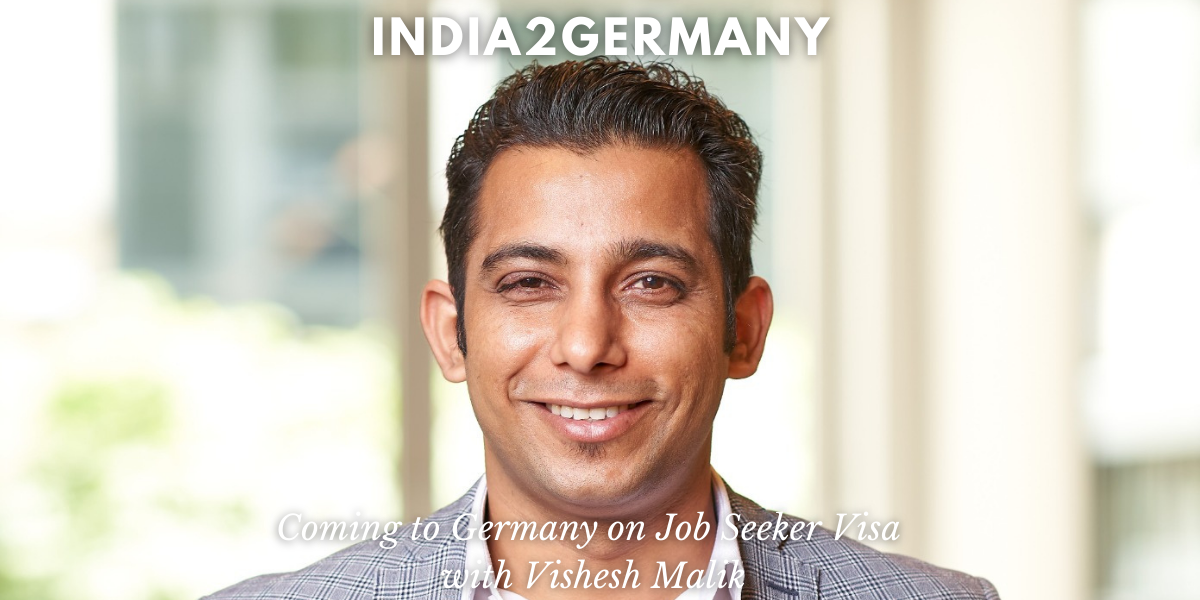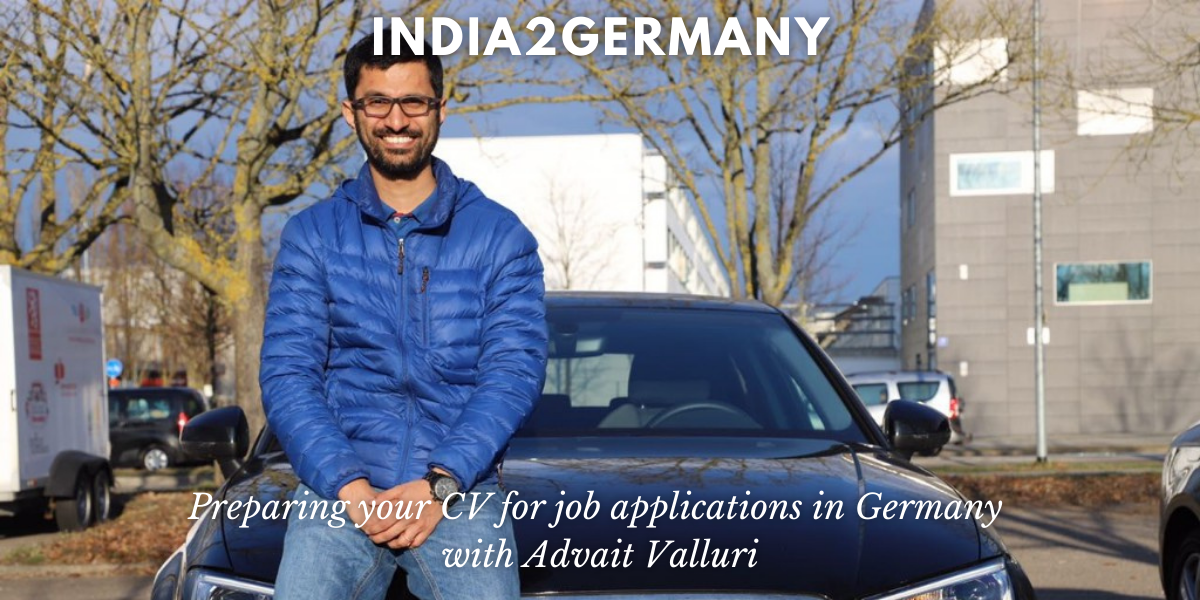
Job Seeker Visa for Germany
Introduced in 2012, the Job Seeker Visa allows qualified professionals to come and look for employment in Germany. Let us explain how it works.
There are several different kinds of visas to enter Germany, depending on your reason of travel. Sometimes it's hard not to get lost in the complexity of the visa system.
If you are looking for an overview of the different types of visas for working in Germany, please see our previous article (link below). In this article, we'll talk about the Job Seeker Visa for Germany.

If you are about to start a job in a German company (or in another country in the EU), you get a Blue Card or a Work visa. Since 2012 the Blue Card is the visa for highly skilled employees working in the EU. But you only get this visa when you already have a contract with a company and you earn at least 55,200 Euros per year.
But what can you do, if you don't have a job in Germany yet?
It's always easier to look for a job in the country itself and most of the time, companies want to meet you in person or want you to have a trial work day before they offer you a job.
For that reason and since Germany needs highly skilled workers, in 2012 the German government decided to offer a special visa for jobseekers.
This offers you a residency permit for six months to look for a job in Germany.
Who can make use of the Job Seeker Visa?
Here are the requirements:
-
You have proof of vocational or academic training
-
Your qualifications are accepted in Germany and are equivalent to the German ones
-
You have to have German language skills (B1 level)
-
You can prove, that you can cover the costs of living during your time of stay. You are not allowed to work in a paid job during that time.
How can you apply for the Job Seeker Visa?
If you fulfill the requirements, you can take the next three steps:
Step 1: Get an appointment at the German embassy and prepare these documents:
-
Passport
-
Proof of recognized academic or vocational qualification
-
Proof of financial means (e.g. declaration of commitment, blocked bank account)
-
Proof of German language competence (B1), if you have a vocational qualification
-
Visa application form
Step 2: Apply for the visa in your home country. You have to bring
all of the required documents and pay a fee (75 Euros in local currency).
This process can take a few days to a few weeks.
Step 3: If your visa is approved, you can book your flight to Germany and start your job search.
Also check out our interview with Vishesh Malik, who left his well-established career in India to come to Germany on a Job Seeker Visa. Vishesh shares his experience and gives lots of useful advice on the preparation needed and the application process.

You found a job with the help of the Job Seeker Visa! What are the next steps?
Congratulations! You found a job! But what happens now?
If you found a job and have a contract with a German company, you don't have to leave the country again. But you have to change your type of visa of course.
First you have to make an appointment with the Ausländerbehörde (foreigners authority) in Germany and apply for the "Blue Card" or for a
"work visa for qualified professionals". For sure there will be a lot of documents required again, so make sure you have all you need. Here is a list from the city of Berlin:
[https://service.berlin.de/dienstleistung/324659/en/]
Pay the fees: about 100 euro.
Important: You have to apply for the "Blue Card" or for the "work visa for qualified professionals" before your job seeker visa expires!
What is the difference between Blue Card and work visa for qualified professionals?
As already mentioned, you have to have a salary of at least 55,200 Euros
per year to get the Blue Card. If you earn less than that, you have to
apply for the work visa for qualified professionals. In both cases, you need to have a recognized academic or vocational qualification.
If you are a holder of the Blue Card, you have some advantages, such as a faster route to permanent residence in Germany.
What if you don't find a job during the six months?
Unfortunately, the Job Seeker Visa can not be extended, while you're in the country. When the six months are over and you didn't find a job, you have to return to your home country. There you have to spend at least the same amount of time as you spent in Germany before you can apply for a second Job Seeker Visa.
Can you use this visa to look for a place for vocational training?
No. This visa is only for people, who already completed vocational or academic training. If you are looking for a training program in Germany, you have to search from your place of residency. If you find a place for your training program, you can apply for a special visa for vocational training.
📬 Subscribe to our newsletter to stay up-to-date! 👇
India2Germany Newsletter
Join the newsletter to receive the latest updates in your inbox.







